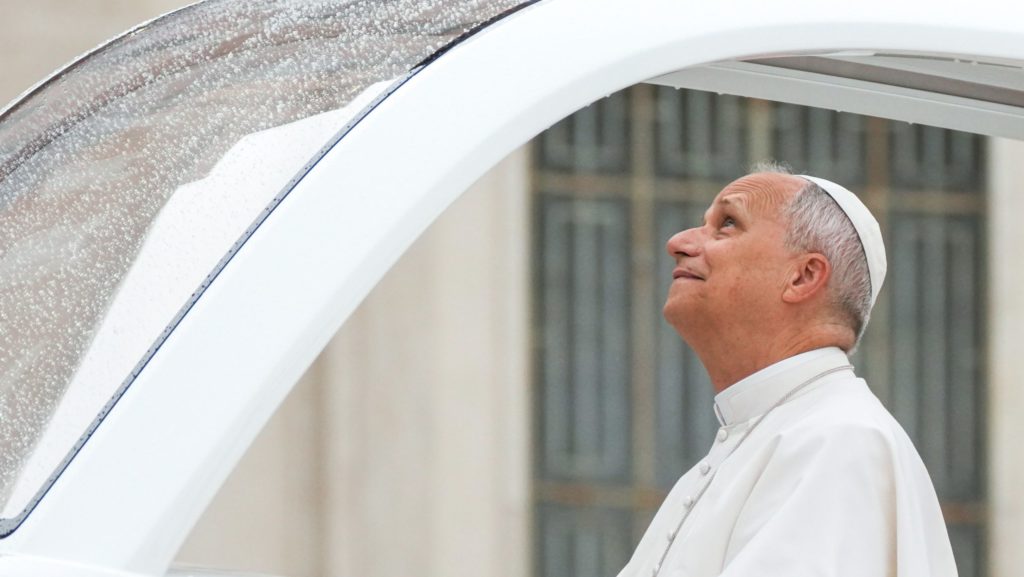Crying out to God during moments of extreme trial does not mark a crisis of faith but can reflect an act of total surrender to and enduring trust in God, Pope Leo XIV said.
"In the journey of life, there are moments in which keeping something inside can slowly consume us," the pope told thousands of people huddled under umbrellas or dressed in rain gear in St. Peter's Square Sept. 10 for his weekly general audience.
"Jesus teaches us not to be afraid to cry out, as long as it is sincere, humble, addressed to the Father," he said.
"A cry is never pointless if it is born of love, and it is never ignored if it is delivered to God," he said. "It is a way to not give in to cynicism, to continue to believe that another world is possible."
During the audience, the pope offered special greetings to Arabic-speaking faithful, especially those from the Holy Land.
"I invite you to transform your cry in times of trial and tribulation into a prayer of trust, because God always listens to his children and responds at the moment he deems best for us," he said.
Pope Leo also asked the faithful to find inspiration in Sts. Pier Giorgio Frassati and Carlo Acutis, the two young men he canonized Sept. 7, and, like them, "learn from Christ the cry of hope and the desire to open our hearts to the will of the Father who wants our salvation."
In his main talk, the pope continued his series of reflections on lessons of hope from the Gospel stories of Jesus' last days, focusing specifically on the crucified Christ's cry to God and his death on the cross.
Before he cried out on the cross, Pope Leo said, Jesus asked "one of the most heart-rending" questions that could ever be uttered: "My God, my God, why have you forsaken me?"
"The Son, who always lived in intimate communion with the Father, now experiences silence, absence, the abyss. It is not a crisis of faith, but the final stage of a love that is given up to the very end," the pope said. "Jesus' cry is not desperation, but sincerity, truth taken to the limit, trust that endures even when all is silent."
"We are accustomed to thinking of crying out as something disorderly, to be repressed," the pope said. However, "the Gospel confers an immense value to our cry, reminding us that it can be an invocation, a protest, a desire, a surrender," even an "extreme form of prayer, when there are no words left."
Crying out can express "a hope that is not resigned," he said. "One cries out when one believes that someone can still hear."
"Jesus did not cry out against the Father, but to him. Even in silence, he was convinced that the Father was there," Pope Leo said. "And, in this way, he showed us that our hope can cry out, even when all seems lost."
"We come into the world crying: it is also a way of staying alive," he said. "One cries when one suffers, but also when one loves, one calls, one invokes. To cry out is saying who we are, that we do not want to fade away in silence, that we still have something to offer."
When the hour of extreme trial comes, he said, "let us learn the cry of hope," which is not a cry meant to hurt or to shout at someone, "but to entrust ourselves" and "to open our hearts."
If one's cry is genuine, it can usher in a new beginning, he said. "If it is made manifest with the trust and freedom of the children of God, the suffering voice of our humanity, united with the voice of Christ, can become a source of hope for us and for those around us."

